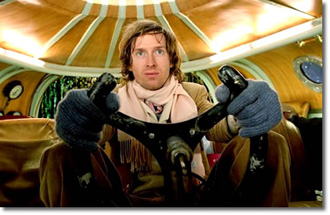|
|
A-List: AuteursBy Josh SpiegelJuly 2, 2010
Stanley Kubrick For me, it’s the character glowering at me. This is what defines a Stanley Kubrick film to me. Think of the many male characters who have done this in Kubrick’s works: Dave Bowman in 2001, Jack Torrance in The Shining, Pyle in Full Metal Jacket, Alex in A Clockwork Orange. A Stanley Kubrick film is known for many things, but it’s one of the main characters glaring upwards at the camera that always shakes me. Kubrick is one of the most hailed directors, having brought films such as Dr. Strangelove, Lolita, Eyes Wide Shut, and the aforementioned works to audiences everywhere. Unlike the other directors on the list, Kubrick was more isolated and his works considered colder and more distant. That doesn’t mean that his movies aren’t immediately unique and singular. Kubrick died in 1999, before his final film, Eyes Wide Shut, was released, but his spirit managed to live on with the Steven Spielberg sci-fi film A.I., which Kubrick had intended to direct before he passed away. A.I. is one of Spielberg’s most divisive films, but it is not only worth watching, but it’s pretty damned haunting if you take a little time to ponder what’s actually happening in the final half-hour, which is often derided by those who aren’t fans of the film. Kubrick’s vision still lingers through Spielberg’s camera, the Pinocchio story in a post-apocalyptic future. Though his films aren’t truly lovable, they are all worth cherishing and frequently unforgettable, noted by the unflinching eye to violence, the harsh statements on the human race, and Kubrick’s beautiful and striking use of the camera.
|

|
|
|

|
Monday, May 6, 2024
© 2024 Box Office Prophets, a division of One Of Us, Inc.


